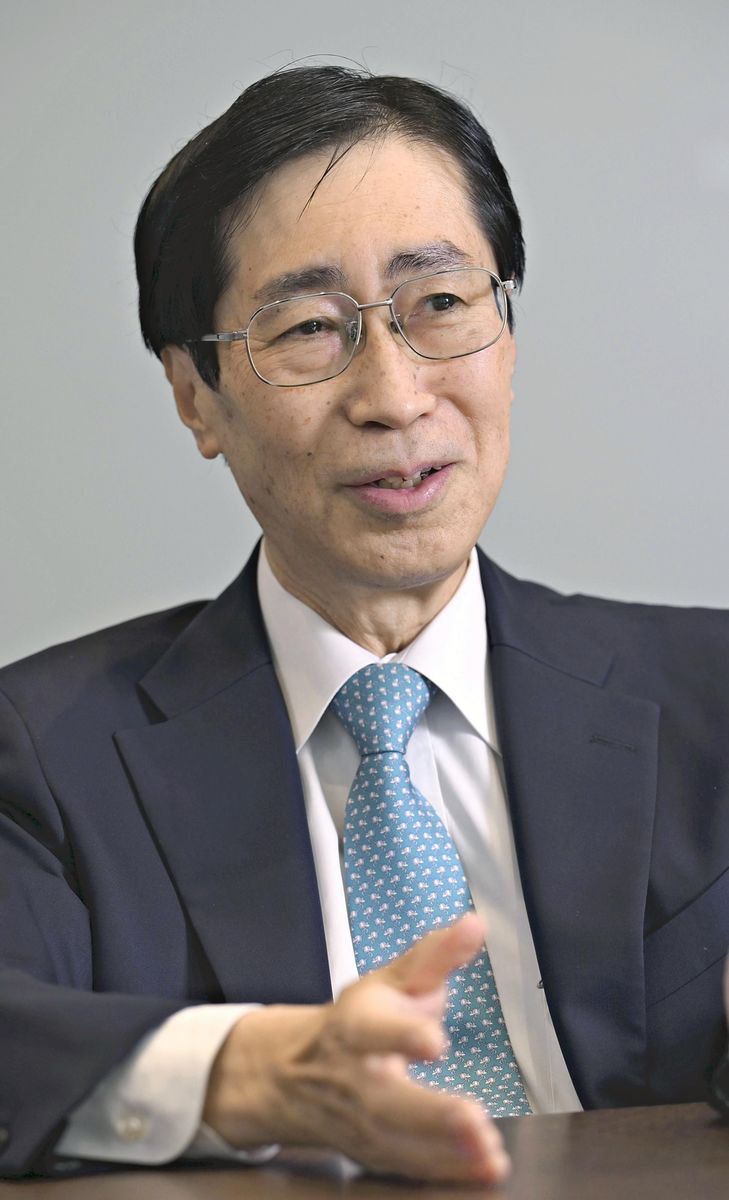‘Japan Should Have Its Own Demands’ in Talks with U.S., Expand Trade With Other Nations, Says Ex-Ministry Official

Masaaki Okuhara speaks during an interview with The Yomiuri Shimbun.
20:00 JST, April 17, 2025
Masaaki Okuhara, a former administrative vice minister at the Agriculture, Forestry and Fisheries Ministry, suggested during an interview with The Yomiuri Shimbun that Japan should be prepared to issue a few demands of its own during trade negotiations with the United States.
The following is excerpted from an interview conducted by Yomiuri Shimbun Staff Writer Haruna Fukushima.
***
The term “reciprocal tariffs” implies imposing the same level of tariff measures and other steps against a trading partner. However, the reciprocal tariffs recently announced by the United States do not neatly fit that description. Instead, it seems they are a means of making a trade deal.
The calculation formula used to derive the tariff rate suggests that the objective of these duties is to eliminate the U.S. trade deficit. Japan imports about ¥2 trillion worth of agricultural, forestry and fisheries products from the United States, but only about ¥250 billion of such products go back the other way as exports. Japan runs a trade deficit in this sector. Given the sheer size of the United States’ bilateral trade deficit with Japan (about ¥8.6 trillion), it’s largely pointless to focus solely on these products. Our top priority should be to first grasp what Washington’s objectives are and its true intent.
We will engage in direct bilateral negotiations with the United States. However, the U.S. government will be holding talks with many other countries as well. There also is an element of multilateral negotiations taking place, so we need to closely watch how the negotiations with other nations progress. With an array of different factors moving simultaneously, our negotiators will need to consider the best way to protect Japan’s national interests during this process. These negotiations will be extremely difficult.
Because the nation’s interests are at stake in these talks, it will not simply be a matter of agreeing to steadily lower tariffs and take other steps. Hastily concluding negotiations and ending up with an unfavorable agreement would be senseless. We need to observe the other side’s approach and carefully decide on our course of action.
Negotiations should not involve one side alone making concessions. Japan must not be the only side facing demands during these talks with the United States. We also must consider what cards we can play to gain something.
For instance, the United States also has restrictions on beef imports. The United States has set a low tariff-rate quota for beef from multiple other countries, but imports from nations such as Brazil soon fill this quota. Consequently, beef exports from Japan have not been able to rise. This issue could give Japan some leverage in the negotiations.
The latest U.S. tariffs will, in the short term, be a blow for exports to the United States. Nevertheless, the United States is not our sole export destination. Working closely with the European Union, member nations of the Trans-Pacific Partnership free trade agreement and countries in Asia will become more important. Japan must not focus solely on how we handle the U.S. negotiations; we must steadily push ahead in expanding trade with nations other than the United States. We also must think about broadening the range of export destinations.
After the Uruguay Round of trade negotiations that member states of the General Agreement on Tariffs and Trade agreed to in 1993, the government poured ¥6 trillion into domestic agricultural support measures. Despite this, agricultural productivity has not improved. If subsidies are continually given out because farmers are struggling, that means the agricultural sector will always be dragged into trade disputes no matter how much time passes.
The government should vigorously promote the consolidation of farmland cultivated by professional farmers, combine smaller plots into larger farms, improve agricultural productivity and bring down costs. Japan must make its agricultural sector internationally competitive and capable of exporting more products to the world. The government’s most important task is to once again knuckle down and consider its efforts to strengthen the competitiveness of Japan’s agricultural sector.
Masaaki Okuhara
Former Agriculture, Forestry and Fisheries Administrative Vice Minister
Graduated from the University of Tokyo’s Faculty of Law. Okuhara began working at the Agriculture, Forestry and Fisheries Ministry in 1979, and held posts including the head of the Food Safety and Consumer Affairs Bureau, before serving as administrative vice minister from 2016 to 2018. Okuhara pushed for agricultural reforms during the administration of former Prime Minister Shinzo Abe. Currently a visiting professor at the University of Tokyo.
Top Articles in Politics
-

Japan PM Takaichi’s Cabinet Resigns en Masse
-

Sanae Takaichi Elected Prime Minister of Japan; Keeps All Cabinet Appointees from Previous Term
-

Japan’s Govt to Submit Road Map for Growth Strategy in March, PM Takaichi to Announce in Upcoming Policy Speech
-

LDP Wins Historic Landslide Victory
-

LDP Wins Landslide Victory, Secures Single-party Majority; Ruling Coalition with JIP Poised to Secure Over 300 seats (UPDATE 1)
JN ACCESS RANKING
-

Japan PM Takaichi’s Cabinet Resigns en Masse
-

Japan Institute to Use Domestic Commercial Optical Lattice Clock to Set Japan Standard Time
-

Israeli Ambassador to Japan Speaks about Japan’s Role in the Reconstruction of Gaza
-

Man Infected with Measles Reportedly Dined at Restaurant in Tokyo Station
-

Videos Plagiarized, Reposted with False Subtitles Claiming ‘Ryukyu Belongs to China’; Anti-China False Information Also Posted in Japan






















